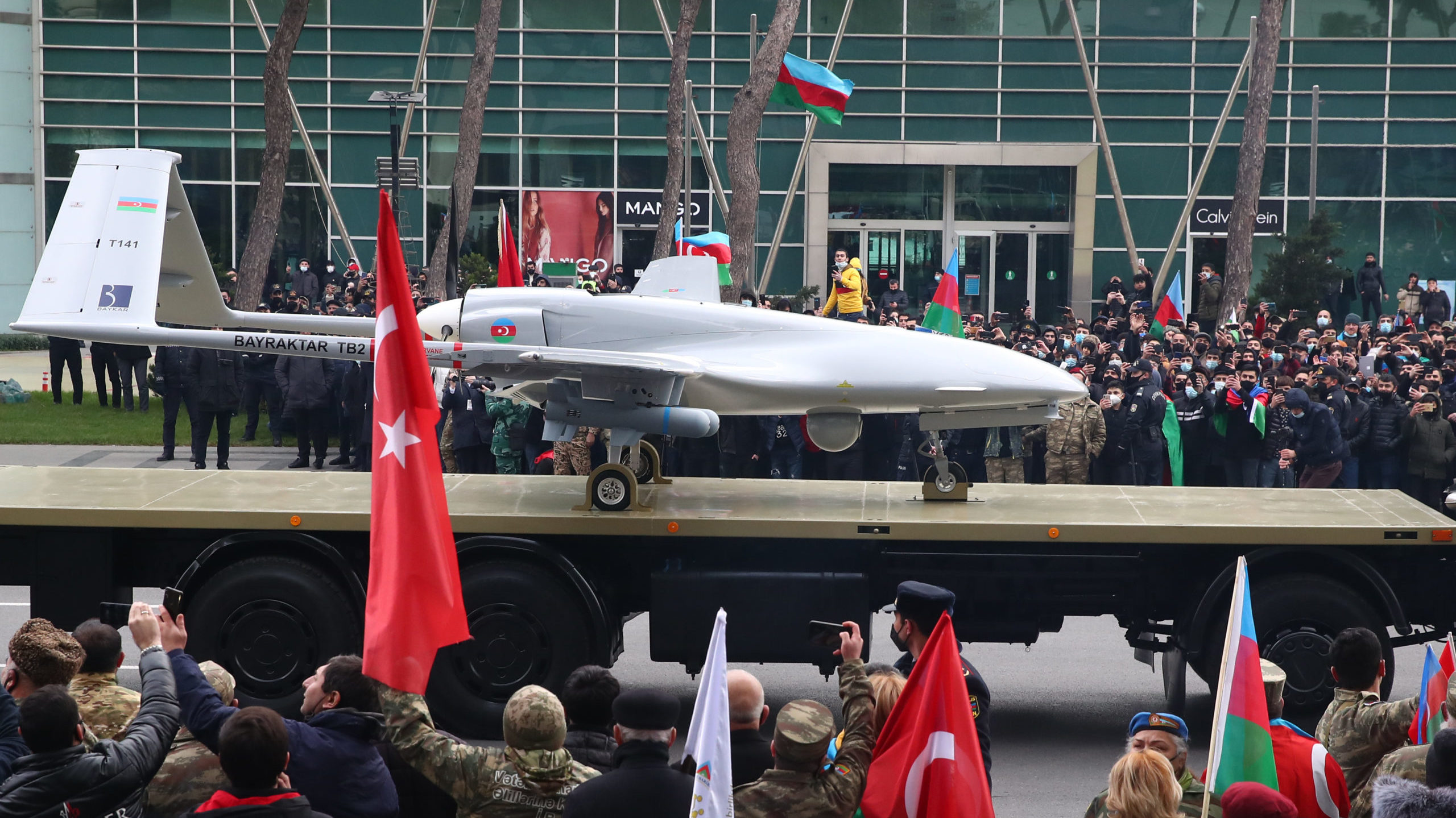Turkey To Continue Push Into Drone Industry After Canadian Ban, Analysts Say
Ankara has grown its arms industry over the past decade, along with more aggressive foreign policy
Turkey’s growing arms industry was served a setback when NATO ally Canada said it would stop selling advanced drone technology to Ankara, but the measure is unlikely to deal lasting harm to the sector, analysts tell The Media Line.
Ottawa on Monday said it was canceling export permits for drone technology, including cameras, to Ankara after finding “credible evidence” that Canadian-manufactured equipment was sent to Turkey’s close ally Azerbaijan, which then used it against Armenian forces in the Nagorno-Karabakh conflict.
Foreign Minister Marc Garneau said, “This use was not consistent with Canadian foreign policy, nor end-use assurances given by Turkey.”
The decision comes after Ottawa suspended exports last October to review the accusations Ankara had sent the drone technology to Azerbaijan and then lifted the ban after intense lobbying by Turkey.
Aaron Stein, research director at the Philadelphia-based Foreign Policy Research Institute, said export deals between two countries include agreements that the products will not be sent to a third party.
It is unclear how much Canada’s decision will cost Turkey and what that will mean for its ability to produce drones at scale, he added.
In the short term, Turkey’s ability to sell the drones to others may be limited, but the ban is not disastrous for the program, Stein said.
In response to Canada’s decision, the Turkish government stated, “We expect our NATO allies to avoid unconstructive steps that will negatively affect our bilateral relations and undermine alliance solidarity.”
Turkey has faced arms embargoes from its NATO allies in the past and was kicked out of the US’s F-35 stealth fighter jet program in 2019 over Ankara’s contentious decision to buy the Russian S-400 anti-missile defense system.
Drones are especially useful for Ankara because they can be made cheaply while allowing the country to reach more battlefields.
“If they lose one it’s not a financial catastrophe,” Stein said.
In Syria, the use of drones means Turkey would not lose a pilot if Russia decided to shoot one down, which could help avoid heightening tensions between the two countries.
There were fears in 2015 that Ankara and Moscow could go to war after the Turkish military shot done a Russian jet it said had veered into Turkish airspace but which the Kremlin said was in Syrian airspace.
The low cost of drones also makes it easier for Turkey to manufacture them for other parties, providing revenue at a time when the country’s already struggling economy is suffering even more under the COVID pandemic.
Turkish President Recep Tayyip Erdoğan’s popularity has waned amid dire economic problems and a falling lira. Erdoğan’s party lost the Istanbul mayoral race in 2019, his greatest defeat since coming to power.
The Anatolian nation’s arms production has significantly increased in the last 10 years as Turkey has sought to shift its supplies toward more domestically produced equipment.
There are seven Turkish defense companies among the top 100 in the world by revenue, according to Defense News.
From 2002 to 2020, the arms industry went from $1 billion to $11 billion in annual revenue, including $3 billion in exports, making Turkey the 14th-largest global defense exporter, according to the Carnegie Endowment for International Peace.
At the same time, Ankara decreased its military hardware imports by 40%, Carnegie said.
Turkey’s interest in developing its arms industry was on full display when it continually stressed that technology transfer was necessary in its arms purchase from Russia, but later reports stated Moscow did not provide such a transfer.
Muzaffer Şenel, from Ankara Medipol University’s Political Science and International Relations Department, argues the increased use of drones also helps Erdoğan boost nationalist sentiment by allowing him to push a more assertive foreign policy.
“Erdoğan tries to divert the Turkish public’s attention with his drone rhetoric,” Şenel said.
The Turkish president has to increasingly rely on nationalist support amid a decline in the popularity of his party, the Justice and Development Party (AKP).
AKP is partnered with the ultranationalist Nationalist Movement Party (MHP), which Erdoğan needs to keep a majority in parliament.
Ankara is “showing its muscle by investing in this broad technology … becoming more ambitious and also to show its muscle,” Şenel said.
He added that the drone industry will only grow in Turkey as fighting between countries increasingly relies on artificial intelligence.
Şenel said the increased use of drones can change warfare in a similar way to how the addition of planes altered conflicts.
“Turkey is going to be a drone power,” he said.


